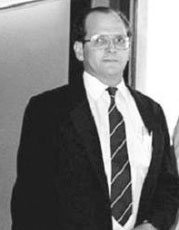Stephen Camacho, the longest serving secretary/chief executive of the West Indies Cricket Board (WICB) and the last Test player in the position, died at his home in Antigua yesterday after a long battle with cancer. He would have been 70 on October 15.
Appointed the board’s first executive secretary in 1982 he was transferred to the new designation as chief executive officer until his retirement in 2000. In the 18 years, he was manager and assistant manager and selector of West Indies teams and on the International Cricket Council (ICC) chief executive committees.
In that time, under the successive presidencies of Jeffrey Stollmeyer, Allan Rae, Sir Clyde Walcott and Peter Short, who predeceased him by two months, West Indies cricket dominated international cricket.
I got to develop a firm friendship with him and his wife, Alison, in Barbados when he conducted the board’s business virtually on his own out of a small office at Kensington Oval. It continued until the end.

I could understand his anguish at the controversies that have consumed West Indies cricket since and led to its continuing deterioration. In recent years, he could hardly bring himself to attend Tests in Antigua where the board’s headquarters were located on their move from Barbados.
Not that it completely dulled his love of life. He was partial to a drink or two but never to overindulgence. He spoke passionately and humorously, and with precise attention to delivery, about his days in the game and the vast number of friends he had made through it.
As a patient, technically correct opener who batted in spectacles, Steve Camacho played 11 Tests for the West Indies and 35 matches for Guyana between 1965 and 1979. His modest averages of 29.09 in Tests and 34.86 in all first-class matches did no justice to his talent.
It was evident in an innings of 157 for Guyana Colts against the touring Australians in 1965 at Bourda, where he had developed his passion for the game at the Georgetown Cricket Club. He was then 19. A year later, his 106 for Guyana against Trinidad and Tobago at the Queen’s Park Oval was the first of his seven first-class hundreds.
Strong cricketing family ties guided his future.
His grandfather, G.L.Learmond, represented British Guiana, Trinidad and Barbados in the inter-colonial tournaments at the turn of the 20th century and toured England with West Indies teams in 1900 and 1906. His father, George, a left-handed batsman and right-arm medium-pacer, had 15 matches for British Guiana, three as captain.
Camacho junior was part of the phenomenally powerful Guyana batting team of the 1960s that included, at one time or another, his dashing left-handed opening partner, Roy Fredericks, Rohan Kanhai, Basil Butcher, Joe Solomon, Clive Lloyd and Alvin Kallicharran.
Picked in the Test team for the first time against England in the Caribbean, his 87 in the fourth Test at the Queen’s Park Oval remained his highest score.
He struggled on the 1968-69 tour of Australia, managing 57 runs in his two Tests but retained his place to England later in the year, topping the batting averages in the Tests with 46.75. An ordinary series against India in 1971 proved to be his last.
Although he continued for Guyana until 1979, he was being groomed for administrative work by mentors such as Sir Clyde Walcott, Berkeley Gaskin and Kenny Wishart.
Walcott, a Barbadian, was then the national coach credited with the emergence of players from outside the confines of the capital, Georgetown. He was also Guyana captain and board president. Camacho eventually joined him during his term as WICB president.
Gaskin, a tall medium-pacer, who had two Tests against England in 1948, was subsequently more familiar as a WICB member; he was manager on Camacho’s initial tour of Australia and New Zealand in 1968-69. Wishart, a pre-war British Guiana captain, was later the highly regarded secretary of the Georgetown Cricket Club and the Guyana board.
When the post of executive secretary was established, Camacho was the obvious candidate.
It was his background that strongly guided his success in the game that was his passion.





